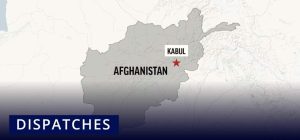This summer once again reminded Pakistan of a harsh truth: climate change is not a distant threat, it is a lived reality. From unprecedented heatwaves in Sindh and Punjab to flash floods in Khyber Pakhtunkhwa and Gilgit-Baltistan, millions of Pakistanis faced displacement, crop failure, and rising health risks.
The National Disaster Management Authority (NDMA) has already warned that the coming years will bring even greater volatility. Yet our national conversation still treats climate as an “environmental” problem – instead of what it truly is: a question of security and survival.
In 2022, when one-third of Pakistan was submerged, the world briefly took notice. Global leaders pledged support, international media carried heartbreaking images, and aid flowed in. But since then, little has changed in structural terms. Two years later, Pakistan is enduring the same patterns: unprepared institutions, fragile infrastructure, and reactive policies. This cycle of disaster and recovery is not sustainable.
Environmental shocks are not isolated events. They are political shocks. They erode state capacity, destabilize economies, and widen the space for social unrest. In fragile democracies like ours, every calamity has political consequences.
Consider the recent heatwaves that forced schools to shut down across Punjab and Sindh. The immediate costs were educational losses and public health emergencies. But the long-term costs are political. Parents lose trust in government capacity, farmers face falling yields, urban centers experience water shortages, and communities already struggling with inflation grow angrier. These cascading effects are rarely captured in headlines – but they reshape the state-society contract.
The international context makes this even more worrying. While Pakistan reels from disaster after disaster, the world’s leading powers remain consumed by their own rivalry. Washington and Beijing continue to compete over military dominance and trade supremacy, but neither is treating climate as the central battlefield of the 21st century. For Pakistan, this neglect is not academic. It is measured in drowned villages, lost harvests, and displaced families.
The floods in Khyber Pakhtunkhwa this August once again exposed the limits of our response system. Bridges collapsed, cutting off entire districts. Emergency shelters were overcrowded, forcing families to live in unsafe conditions. Food and medical shortages soon followed. These are not just humanitarian failures – they are security vulnerabilities. A weakened population, stripped of livelihoods and left with little state support, is more susceptible to radicalization, crime, and migration pressures. This is why Pakistan must urgently rethink climate policy.
First, domestically: climate resilience must be treated as a national security priority. Investing in flood-resilient infrastructure, early warning systems, and sustainable water management is not charity work. It is political stabilization. Every rupee spent on resilience saves multiple rupees spent on recovery, and it strengthens the social contract between citizens and the state.
Internationally, Pakistan should reposition its diplomacy. At the UN, COP summits, and regional forums, we can no longer frame climate only as a moral appeal for aid. We must frame it as a shared security threat. If fragile states like Pakistan continue to be battered by climate shocks, instability will spread – and no great power will be able to contain the ripple effects. This argument carries more weight than charity appeals, because it speaks directly to the self-interest of global actors.
There is also an opportunity for Pakistan to lead. By building coalitions with other climate-vulnerable countries in South Asia, Africa, and the Pacific, we can demand structural reforms in global climate financing. We can also shift our foreign policy image – away from being seen solely through the lens of counterterrorism – and toward being recognized as a frontline state in climate security.
The recent calamities are not anomalies. They are previews of a new normal. Each season brings fresh reminders that Pakistan is among the most climate-vulnerable countries in the world. But vulnerability does not have to mean helplessness. With political will, Pakistan can turn this crisis into an opportunity: to strengthen domestic institutions, to claim moral and strategic ground internationally, and to redefine security for the 21st century.
If we continue to treat climate as a peripheral issue, we will remain trapped in the cycle of disaster and recovery. But if we elevate it to the center of our national agenda, we can not only protect our people but also carve out a stronger place in global politics.
The choice before us is stark: to wait for the next flood or heatwave to overwhelm us, or to finally accept that climate is not just an environmental challenge. It is Pakistan’s most urgent national security question.
Disclaimer: The views expressed in the article are of the author and do not necessarily represent the institute’s policy.
Authored by: Muhammad Saad Saleem is a researcher with an MPhil in Political Science.
Read More: Strengthening Pakistan’s Climate Resilience: Application of Climate Policy Assessment Tool (CPAT)

